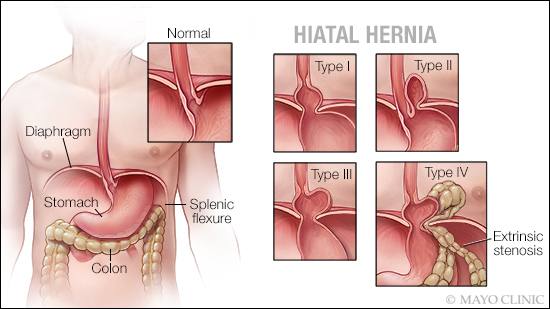Hiatal Hernia Surgery in Lebanon
Search and Compare the Best Clinics and Doctors at the Lowest Prices for Hiatal Hernia Surgery in Lebanon

Find the best clinics for Hiatal Hernia Surgery in Lebanon
No pricing info available
Morocco offers the best prices Worldwide
Price: $ 520
From 103 verified reviews
Nada Nassar, 19 August 2020
The best place to be
From 38 verified reviews
Joyce Jabbour, 19 May 2020
It is a very nice hospital, very clean, the service is great, personnel is very friendly and professional. Great hospital! Well done. Thank you for being the best hospital in Lebanon
- Home
- Lebanon
WHY US?
At Medijump, we're making medical easy. You can search, compare, discuss, and book your medical all in one place. We open the door to the best medical providers worldwide, saving you time and energy along the way, and it's all for FREE, no hidden fees, and no price markups guaranteed. So what are you waiting for?

Free

Best Price

Widest Selection

Risk-Free
What you need to know about Hiatal Hernia Surgery in Lebanon

A Hiatal Hernia is when the stomach extends up into the chest through an opening in the diaphragm. Hiatal hernia surgery is a surgical procedure to repair and return the stomach to its normal location and is normally performed when the symptoms are severe or it did not respond well to other treatments.
What does a Hiatal Hernia Surgery Procedure Involve?
Hiatal hernia surgery can be performed as a laparoscopic or open surgery; both are done under general anesthetic. With open surgery, your surgeon makes a single large incision in your abdomen and returns your stomach to where it belongs and wraps it around the lower part of the esophagus to create a tighter sphincter. With laparoscopic surgery, your surgeon will make 3 to 5 small incisions to insert surgical instruments and the laparoscope. The laparoscope transmits images of the internal organ to a monitor, guiding your surgeon through the surgery.
How Long Should I Stay in Lebanon for a Hiatal Hernia Surgery Procedure?
You may need to stay in the hospital for 1 to 3 days, but you should plan to stay in Lebanon a lot longer. Plan to stay for at least 7 to 14 days or when you get sign-off from your surgeon. During your stay, you will need to attend scheduled follow up appointments and also removal of the stitches.
What's the Recovery Time for Hiatal Hernia Surgery Procedures in Lebanon?
A full recovery may take about 10 to 12 weeks, but you can resume some of your daily routines and work within 6 to 8 weeks. If you have a physically demanding job, you probably need around 3 months before you can return. However, when the surgery is performed through a laparoscopic method, you may be able to recover in just a few weeks.
What sort of Aftercare is Required for Hiatal Hernia Surgery Procedures in Lebanon?
After a hiatal hernia surgery, you need to avoid baths, hot tubs, or pools. Instead, you can wash your body by taking a shower. You will have a restricted diet to prevent your stomach from extending, this diet involves eating four to six meals per day rather than 3 large meals, as well as avoiding food that causes gas. Your doctor will also give you coughing and breathing exercises to help strengthen your diaphragm.
What's the Success Rate of Hiatal Hernia Surgery Procedures in Lebanon?
A hiatal hernia surgery is effective and safe, with around 90% to 95% success rate. The mortality rate after the laparoscopic method is 0.57%, while the mortality rate after open surgery is about 1.0% - 2.7%. Just like any surgery, there are risks, complications, and that you need to be aware of, including bleeding, injury to internal organs, infection, diarrhea, abdominal bloating, and recurrence of the hernia.
Are there Alternatives to Hiatal Hernia Surgery Procedures in Lebanon?
Hiatal hernia surgery is effective for those that experience severe symptoms. If your symptoms are mild, you can opt for medications or home treatment.
What Should You Expect Before and After the Procedure?
Once you have fully recovered, the symptoms that you experience before the surgery, such as nausea and heartburn, should subside.
Whilst the information presented here has been accurately sourced and verified by a medical professional for its accuracy, it is still advised to consult with your doctor before pursuing a medical treatment at one of the listed medical providers
No Time?
Tell us what you're looking for and we'll reachout to the top clinics all at once
Enquire Now

Popular Procedures in Lebanon
Prices Start From $42

Prices Start From $4

Prices Start From $260

Prices Start From $520

Prices Start From $714

Recommended Medical Centers in Lebanon for Hiatal Hernia Surgery

- Interpreter services
- Translation service
- Religious facilities
- Medical records transfer
- Medical travel insurance
- Health insurance coordination
- TV in the room
- Safe in the room
- Phone in the room
- Private rooms for patients available

- Interpreter services
- Translation service
- Religious facilities
- Medical records transfer
- Medical travel insurance
- Health insurance coordination
- TV in the room
- Safe in the room
- Phone in the room
- Private rooms for patients available

- Interpreter services
- Translation service
- Religious facilities
- Medical records transfer
- Medical travel insurance
- Health insurance coordination
- TV in the room
- Safe in the room
- Phone in the room
- Private rooms for patients available

- Interpreter services
- Translation service
- Religious facilities
- Medical records transfer
- Medical travel insurance
- Health insurance coordination
- TV in the room
- Safe in the room
- Phone in the room
- Private rooms for patients available

- Interpreter services
- Translation service
- Religious facilities
- Medical records transfer
- Medical travel insurance
- Health insurance coordination
- TV in the room
- Safe in the room
- Phone in the room
- Private rooms for patients available
Hiatal Hernia Surgery in and around Lebanon
Lebanon, a country on the eastern shore of the Mediterranean Sea, is one of the smallest sovereign states. The country boasts a fascinating mixture of the Middle East and the West, Christianity, and Islam, and tradition and modernity. It has everything from golden beaches and World Heritage Sites to energetic nightlife and delicious cuisine. Among other countries in the Middle East, Lebanon appears to be one of the most popular medical tourism destinations. Over 10% of the tourists visiting the country, particularly from neighboring countries, come to receive medical care. Many hospitals and clinics in the country are accredited to the ISO:9000 standard and offer world-class specialist services in spine treatment, orthopedics, organ transplant, and other complex surgeries, as well as advanced cancer treatments. Cosmetic and reconstructive surgery are also popular.
Popular Parts of Lebanon
Beirut, the capital and largest city of Lebanon, is filled with historic landmarks and natural wonders. The most famous attractions in the city are the National Museum of Beirut, the Corniche and Pigeon Rocks, Sursock Museum, and Mohammed Al Amin Mosque. Many people also come to Lebanon to visit the port town of Sidon. Once a rich and thriving Phoenician city, it is dotted with historical monuments and ancient remnants, particularly in its Old City. Other popular cities include Tripoly, Baalbek, Byblos, and Tyre.
Weather and Climate in Lebanon
Lebanon has four seasons: winter (December to March), spring (April to May), summer (June to September), and autumn (October to November). Winter is the rainy season with high precipitation levels and cool temperatures. It is snowy in the mountains, but in some places, such as Beirut, it just rains during this season. Summer is hot, sunny, and dry, and can get very humid in cities located close to the sea. In the summer, the average temperatures are around 28°C to 30°C. Spring and autumn are both warm and pleasant.
Getting around in Lebanon
The main international airport where visitors fly into and out of Lebanon is Beirut–Rafic Hariri International Airport, which is the only operational commercial airport in the country. It serves international flights to numerous major cities across Europe and the Middle East, including Moscow, Paris, London, and Dubai. Given the small size of the country, there are no internal flights. Intercity buses and minibus are available and have an extensive network, especially in coastal areas. The best way to get around the country is by hiring a car (with a driver) or by using intercity taxis.
Tourist Visas in Lebanon
All visitors need to obtain a visa to enter and stay in Lebanon unless they come from one of the seven visa-exempt countries (including Kuwait, Bahrain, Qatar, Saudi Arabia, Oman, the United Arab Emirates, and Jordan). Citizens of 81 countries, including all EU countries, Australia, China, Canada, and the United States, are eligible for a visa on arrival for a maximum stay of 30 days. A conditional visa on arrival is available for citizens of 15 countries, including Algeria, Libya, Iraq, and Yemen.
Additional Information
- Local Currency: Lebanese Pound (LBP) is the official currency in Lebanon. 1 USD is equivalent to around 1,507 LBP. US dollars and the euro is widely accepted as well.
- Money & Payments: ATMs are widely available in many places around Beirut and other large cities. Many ATMs dispense both US dollars and Lebanese pounds. Credit cards, particularly Visa and MasterCard, are accepted at most major establishments. Tipping can be expected, usually around 10% to 15% of the bill.
- Local Language: Arabic is the official language in Lebanon. English and French are widely spoken as well, and many Lebanese can speak at least two to three languages.
- Local Culture and Religion: Islam (around 60% of the population) and Christianity (around 34%) are the primary religions in Lebanon. About 5% of Lebanese practice the Druze faith, while other religions are practiced by the remaining 1% of the population.
- Public holidays: New Year’s Day, Christmas Day, Eid al-Fitr, Eid al-Adha, All Saints’ Day, Resistance and Liberation Day, as well as Independence Day are some of the more important holidays in Lebanon.
Popular Searches
- Plastic Surgery in Thailand
- Dental Implants in Thailand
- Hair Transplant in Thailand
- Breast Augmentation Thailand
- Gastric Sleeve in Thailand
- Gender Reassignment Surgery in Thailand
- Laser Hair Removal in Bangkok
- Botox in Bangkok
- Dermatology in Bangkok
- Breast Augmentation in Bangkok
- Coolsculpting in Bangkok
- Veneers in Turkey
- Hair Transplant in Turkey
- Rhinoplasty in Turkey
- Stem Cell Therapy in Mexico
- Rhinoplasty in Mexico
- Liposuction in Mexico
- Coolsculpting in Tijuana
- Rhinoplasty in Korea
- Scar Removal in Korea
- Gastric Sleeve in Turkey
- Bone Marrow Transplant in India
- Invisalign in Malaysia
- Plastic Surgery in the Dominican Republic
- Tummy Tuck in the Dominican Republic
- Plastic and Cosmetic Surgery in Poland
- Rhinoplasty in Poland
- Hair Implant in Poland
- Dental Implants in Poland
- IVF in Turkey

